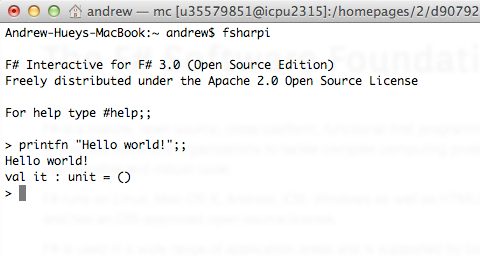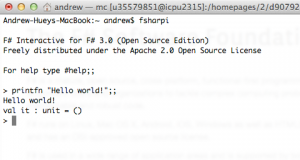I’ve been curious about F# for quite some time, and I recently decided to pick up a few books on it, and see if I could learn it. More generally, I wanted to learn more about functional programming. I thought about learning something like Haskell or Scala, but F# seemed like a good choice. I already know a good bit about the .NET Framework, and the CLR, so I wouldn’t be starting entirely from scratch, and I could stick with tools I already know (Visual Studio).
The three books I picked up are F# for C# Developers, Book of F#, and Programming F# 3.0.I bought them all from as DRM-free e-books from O’Reilly. (This was right before O’Reilly lost the license to sell Microsoft Press books, so the “F# for C#” book would no longer be available from them, if you were looking for it.) I haven’t started the “Programming F#” book yet, so I can’t say anything about it. But I have read a few chapters from each of the other two books.
“F# for C# Developers” is published by Microsoft Press. It’s reasonably well-written, but I haven’t really found it to be particularly engaging or interesting. Of the chapters I’ve read thus far, I’d say that it lives up to its name, in that it is oriented to folks with a good grounding in typical .NET development. I think it would make for a good reference book to keep at my desk, if I was doing some serious F# development at work, and needed to remember the difference between :> and :?>, for instance.
Given that I didn’t feel like I was really learning functional programming from that book, I decided to put it down and start reading “Book of F#”. For my purposes, this is turning out to be a better book. I’ve read the first four chapters so far, and I’m finding that I like the tone of it (including Doctor Who references!), and the general style. I’m finding the example code to be a bit more understandable and interesting than in the other book.
I’ve experimented a bit with re-doing some of the Project Euler problems in F#, as I’ve mentioned before, and I’ve found that to be a good exercise too. Oh, and I’ve solved through to problem 31 there, so I’ve managed to make some overall progress on Project Euler.

